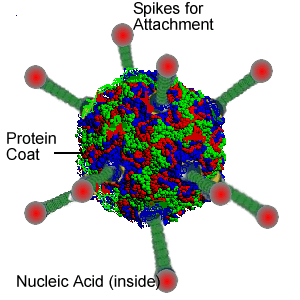Virus genomes
Viruses have been recognized in all cellular forms of life from bacteria to chordates. Pathogenic animal and human viruses are causative agents of serious diseases like as AIDS, hepatitides, encephalitides, influenza, SARS etc. Plant viruses are responsible for several major agricultural problems. Thus, studying several viruses and their interaction with hosts is a prerequisite for searching remedies against viral diseases and understanding the principles of the organization of life.

A virus is an infectious, small, obligate intracellular parasite capable of replicating itself in a host cell. Virions are building through de novo assembly from newly synthesized components that are: the genome and a number of copies of at least one viral protein. An enormous variety of genomic structures can be seen between viral species as a group, they hold more structural genomic diversity than plants, archaea, animals or bacteria. There are millions of several kinds of viruses, while only about 5,000 of them have been eleborate in detail.